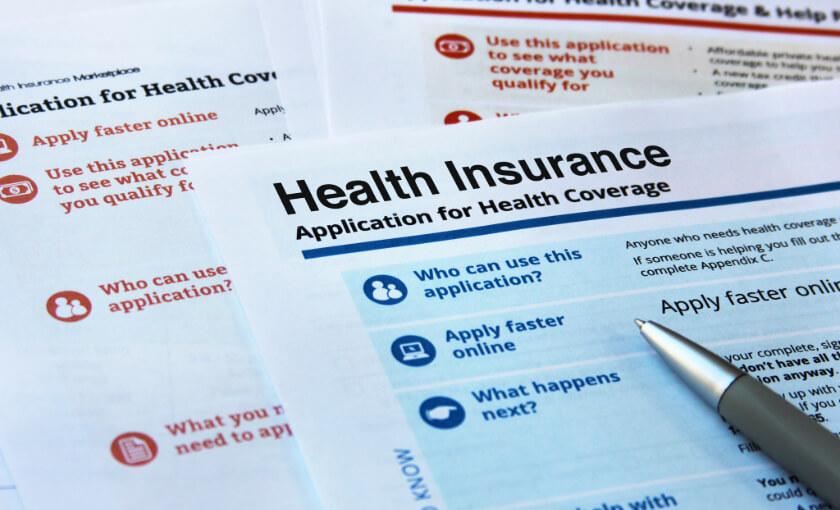Navigating Maryland's Respiratory Season: Protecting Your Family This November
Learn effective strategies to protect your family from respiratory illnesses in Maryland this November, including flu prevention tips, vaccination resources in Montgomery County, and local winter health guidance.

As temperatures drop across Maryland, respiratory illnesses begin their annual rise. November marks a critical transition period when multiple respiratory viruses circulate simultaneously throughout Montgomery County and the greater DC metropolitan area. With the 2025-2026 respiratory season already showing concerning trends, local health officials are encouraging residents to take proactive measures to protect themselves and their families.
Maryland's Current Respiratory Landscape
The Maryland Department of Health recently launched a combined respiratory illness dashboard that tracks COVID-19, influenza, and RSV cases throughout the state. This innovative monitoring system reveals that Montgomery County is experiencing earlier-than-usual respiratory virus activity this season, with cases steadily increasing since mid-October.
According to the latest surveillance data, Maryland is currently seeing a convergence of respiratory threats:
- Influenza activity is increasing, with H3N2 strains predominant in the region
- RSV (Respiratory Syncytial Virus) cases are rising, particularly among children under five
- COVID-19 variants continue to circulate at moderate levels
- Common cold viruses remain prevalent throughout the community
This "triple threat" of respiratory illnesses creates particular challenges for Maryland's healthcare system, which typically experiences peak demand during November through February. Local hospitals are already preparing for increased patient volumes, with some Montgomery County facilities implementing visitor restrictions to protect vulnerable patients.
Prevention Strategies for Maryland Families
Vaccination: Your First Line of Defense
Vaccination remains the most effective tool for preventing serious respiratory illness. For Maryland residents, several options are available:
- Flu Vaccines: The 2025-2026 seasonal flu vaccine is widely available throughout Montgomery County. The Montgomery County Department of Health and Human Services offers vaccination clinics at multiple locations, including Silver Spring, Rockville, and Germantown. Many local pharmacies and retail clinics also provide flu shots, often without an appointment.
- COVID-19 Boosters: Updated COVID-19 vaccines targeting current variants are available at pharmacies, healthcare providers, and county health clinics. The Maryland Department of Health recommends these updated vaccines, particularly for adults over 65, those with underlying health conditions, and individuals who haven't received a COVID-19 vaccine in the past six months.
- RSV Protection: For the first time, RSV preventive options are widely available for both vulnerable infants and older adults. Pregnant women can receive the maternal RSV vaccine during weeks 32-36 of pregnancy to protect newborns, while adults over 60 can receive the new RSV vaccine at most locations offering flu shots.
For maximum protection, health officials recommend completing all vaccinations by mid-November, before holiday gatherings increase transmission risks.
Everyday Prevention Practices
Beyond vaccination, Maryland health officials recommend several daily practices to reduce respiratory illness risk:
- Hand Hygiene: Frequent handwashing with soap and water for at least 20 seconds, particularly after being in public spaces. Hand sanitizer with at least 60% alcohol provides an alternative when handwashing isn't possible.
- Respiratory Etiquette: Covering coughs and sneezes with a tissue or elbow, not hands, helps prevent virus spread. Properly disposing of used tissues immediately further reduces transmission risk.
- Strategic Masking: Consider wearing high-quality masks in crowded indoor settings, particularly if you're at higher risk or when respiratory illness rates are elevated in Montgomery County. The Maryland Department of Health provides weekly updates on community transmission levels to guide these decisions.
- Indoor Air Quality: Improving ventilation in homes and workplaces reduces airborne virus concentration. Opening windows when the weather permits, using HVAC filters rated MERV-13 or higher, and considering portable air purifiers with HEPA filtration can significantly reduce transmission risk.
- Staying Home When Sick: Perhaps the most important but often overlooked prevention strategy is isolating when symptomatic. Maryland employers are encouraged to support sick leave policies that allow employees to recover at home rather than potentially exposing others.
Local Resources for Respiratory Illness
Montgomery County offers several resources to help residents navigate the respiratory season:
- Testing Options: Multiple locations throughout the county offer testing for respiratory viruses, including urgent care centers, community health clinics, and retail pharmacies. Many insurance plans cover respiratory panel testing that can identify the specific virus causing symptoms.
- Telehealth Services: Most Maryland healthcare providers now offer virtual visits for respiratory symptoms, allowing patients to receive care guidance without potentially exposing others. KCM Cares and other community health centers provide telehealth options for those without regular providers.
- Treatment Access: Antiviral medications for influenza and COVID-19 are available at pharmacies throughout Montgomery County. These medications work best when started early, so prompt testing when symptoms develop is crucial.
- Community Support: For vulnerable residents, including seniors and those with disabilities, Montgomery County coordinates assistance with essential needs during illness, including grocery delivery and prescription pickup.
Special Considerations for Vulnerable Populations
Certain groups face higher risks from respiratory illnesses and may need additional precautions:
- Older Adults: Residents over 65 should consider limiting exposure during peak transmission periods and ensure they've received all recommended vaccines, including the high-dose flu vaccine specifically formulated for seniors.
- Children Under 5: Young children, particularly infants, face higher risks from RSV and influenza. Parents should be vigilant for warning signs like rapid breathing, difficulty feeding, or lethargy, which warrant immediate medical attention.
- People with Chronic Conditions: Those with asthma, COPD, heart disease, diabetes, or immunocompromising conditions should work with healthcare providers to create personalized protection plans for the respiratory season.
- Pregnant Women: Pregnancy increases vulnerability to respiratory complications. Maryland obstetricians recommend flu and COVID-19 vaccines during pregnancy, which protect both mother and baby.
- Individuals Experiencing Homelessness: Montgomery County's Hypothermia Prevention Program provides warming centers and overnight shelter during cold weather, helping reduce cold-weather respiratory risks for this vulnerable population.
Looking Ahead: Holiday Considerations
As November progresses toward Thanksgiving and the holiday season, additional considerations become important:
- Travel Planning: For those traveling to visit family, consider testing before gatherings that include vulnerable individuals, particularly if traveling from areas with high transmission rates.
- Gathering Safely: When possible, improve ventilation during indoor gatherings by opening windows briefly or using air purifiers. Consider outdoor activities when the weather permits.
- Backup Plans: Develop contingency plans for holiday celebrations in case household members develop symptoms, including virtual connection options.
By implementing these preventive strategies, Maryland residents can significantly reduce their risk of respiratory illness this November while still enjoying seasonal activities and gatherings. For the latest information on respiratory virus activity in Montgomery County or to locate vaccination and testing resources, visit the Maryland Department of Health website or contact your local healthcare provider.
Remember that prevention is truly the best medicine when it comes to navigating Maryland's respiratory season successfully.
.svg)
.svg)


.jpg)


